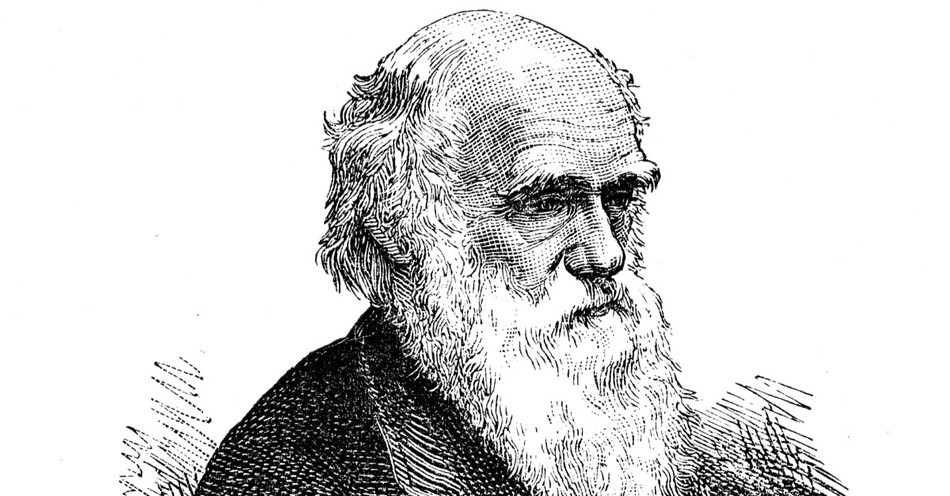Daniel C. Dennett is one of the world's most influential evolutionary scientists, and unlike many of his colleagues, Dennett doesn't run away from Darwinism's logical conclusions. Instead, he describes Darwin's theory of evolution as a "universal acid" that completely reshapes reality, destroying those truths previously held to be enduring and unchanging.
"Whenever Darwinism is the topic, the temperature rises, because more is at stake than just the empirical facts about how life on Earth evolved, or the correct logic of the theory that accounts for those facts," Dennett asserts.
In a recent interview with Germany's Der Spiegel, Dennett dismissed the concept of Intelligent Design, arguing that all intelligent persons simply must accept Darwin's theory at face value. Nevertheless, Dennett does understand the logic of Intelligent Design. As he sees it, many persons reject evolution because it "goes right to the heart of the most troubling discovery in science of the last few hundred years." This is "the idea that it takes a big fancy smart thing to make a lesser thing. I call that the trickle-down theory of creation. You'll never see a spear making a spear maker. You'll never see a horseshoe making a blacksmith. You'll never see a pot making a potter. It's always the other way around and this is so obvious that it just seems to stand to reason."
Nevertheless, Dennett believes this reasoning to be profoundly wrong. Interestingly, he suggests that the idea of Intelligent Design, at least in its fundamental form, may be even older than the human species. He offers the suggestion that what he identifies as earlier species of hominids might have created objects and then "had a sense of being more wonderful than their artifacts." Then, Dennett simply suggests that Homo sapiens, capable of creating a seemingly endless array of objects, would assume that they, too, were the products of an intelligent creator.
Amazingly, Dennett, along with his colleague Richard Dawkins, uses the reality of complexity and apparent design to argue against a designer. In one sense, Dennett simply turns the idea of design on its head, arguing that greater design means, in effect, less proof of a designer. As Dennett claims, "not only can you get design from un-designed things, you can even get the evolution of designers from that un-design. You end up with authors and poets and artists and engineers and other designers of things, other creators--very recent fruits of the tree of life. And it challenges people's sense that life has meaning." Well, of course it does.
Dennett does believe that human beings are unique as a species. This special status is essentially a function of linguistics. Dennett, who serves as University Professor and Austin B. Fletcher Professor of Philosophy at Tufts University, as well as Director of the Center for Cognitive Studies at the university, has devoted himself to the understanding of human consciousness and linguisticality.
The ability to use language, Dennett explains, means that human beings can learn, not only from their own experience, but from others, both living and dead. Thus, "human culture itself becomes a profound evolutionary force. That is what gives us an epistemological horizon which is far, far greater than that of any other species. We are the only species that knows who we are, that knows that we have evolved. Our songs, art, books and religious beliefs are all ultimately a product of evolutionary algorithms. Some find that thrilling, others depressing."
Dennett's ideas are worth a close look. After all, he boldly accepts what so many other evolutionary scientists deny--that Darwin's theory means the impossibility of any belief in God. While evolutionists such as the late Stephen J. Gould argued that evolution and religion could be considered as "non-overlapping magisterium," thus allowing each to operate in separate spheres, Dennett explicitly rejects this argument. He directs specific criticism at evolutionist Michael Ruse, accusing him of "just trying to put the implications of Darwin's insights into soft focus and to reassure people that there is not as much conflict between the perspective of evolutionary biology and their traditional ways of thinking."
When it comes to the human soul, Dennett insists that it must be no more than human consciousness operating as a part of our physical bodies. Dennett's physicalism means that he rejects any concept of the soul as independent of the chemical operations of the brain. As he told Der Spiegel, "The brain is no more wonder tissue than the lungs or the liver. It's just a tissue."
Committed to a radical form of naturalistic materialism, Dennett understands belief in God to be nothing more than an artifact of the evolutionary process. The death of God, Dennett explains, "is a very clear consequence" of Darwinism.
On this point, we should at least be thankful that Dennett is more intellectually honest than many of his evolutionary colleagues. He allows that belief in God may be culturally acceptable, but only insofar as this God has nothing to do with our origins or our lives--past, present, or future.<!-- Inject Script Filtered --><!-- Inject Script Filtered -->
"One has to understand that God's role has been diminished over the eons," Dennett instructs. "First, we had God . . . making Adam and making every creature with his hands, plucking the rib from Adam and making Eve from that rib. Then we trade that God in for the God who sets evolution in motion. And then you say you don't even need that God--the lawgiver--because if we take these ideas from cosmology seriously then there are other places and other laws and life evolves where it can. So now we no longer have God the lawfinder or God the lawgiver, but just God the master of ceremonies. When God is the master of ceremonies and doesn't actually play any role anymore in the universe, he's sort of diminished and no longer intervenes in any way." Put simply, "the job description for God shrinks."
In his 1995 book, Darwin's Dangerous Idea, Dennett began by reciting a Sunday school song he had learned as a child. The song, "Tell Me Why," asks why the stars shine, why the ivy twines, and why the sky's so blue. As the song assures, these things are so because God made them so. "This straightforward, sentimental declaration still brings a lump to my throat--so sweet, so innocent, so reassuring a vision of life!," Dennett remembers. Nevertheless, he doesn't believe that it is true. "The sweet, simple vision of the song, taken literally, is one that most of us have outgrown, however fondly we may recall it. The kindly God who lovingly fashioned each and every one of us (all creatures great and small) and sprinkled the sky with shining stars for our delight--that God is, like Santa Claus, a myth of childhood, not anything a sane, undeluded adult could literally believe in. That God must either be turned into a symbol for something less concrete or abandoned altogether.
The only concept of God that can survive the emergence of Darwinism is God as an intellectual concept who simply offers a mythopoetic means of appreciating grandeur and beauty.
Theism, the belief in a personal and self-existent God, must go the way of the Dodo bird, he argues. "A faith, like a species, must evolve or go extinct when the environment changes. It is not a gentle process in either case . . . . We preach freedom of religion, but only so far." He continues: "It is nice to have grizzly bears and wolves living in the wild. They are no longer a menace; we can peacefully coexist, with a little wisdom. The same policy can be discerned in our political tolerance, in religious freedom. You are free to preserve or create any religious creed you wish, so long as it does not become a public menace."
Well, we have been warned. Dennett clearly understands traditional Christianity to be just the kind of public menace he fears. Nevertheless, he is absolutely certain that he and his cherished theory of evolution will win--and fairly soon. Darwin's theory of evolution will, he confidently asserts, come to occupy a "secure and untroubled place in the minds--and hearts--of every educated person on the globe."
Dennett's excitement about Darwinism goes back to his childhood, when he and his friends would speculate about the existence and effect of a substance they called the "universal acid." "Universal acid is a liquid so corrosive that it will eat through anything! The problem is: what do you keep it in? It dissolves glass bottles and stainless-steel canisters as readily as paper bags. What would happen if you somehow came upon or created a dollop of universal acid? Would the whole planet eventually be destroyed? What would it leave in its wake? After everything had been transformed by its encounter with universal acid, what would the world look like?"
As an adult, Dennett now seizes upon Darwinism as the very universal acid that had fascinated his imagination as a boy. This universal acid is not a liquid substance, but an intellectual idea.
"Little did I realize that in a few years I would encounter an idea--Darwin's idea--bearing an unmistakable likeness to universal acid: it eats through just about every traditional concept, and leaves in its wake a revolutionized world-view, with most of the old landmarks still recognizable, but transformed in fundamental ways."
Transformed indeed. Dennett understands that every important idea and pattern of thought is instantly transformed if Darwinism is accepted as true. The evolutionary worldview of Darwinism, based in purely materialistic and naturalistic explanations of all phenomena, leaves no room for transcendent meaning, human dignity, morality, or hope. Human beings, along with the rest of the cosmos, are simply the accidental byproducts of vast cosmic forces.
Daniel C. Dennett understands all this, but exults in Darwin's "dangerous idea." Indeed, he suggests that he would award Darwin "the gold medal for the best idea anybody ever had." Remember Dennett the next time you hear the argument that evolution and Christianity are compatible. The basic incompatibility of Darwin's theory is the one facet of Dennett's thought we can truly appreciate. Now, if only his evolutionary colleagues would be equally candid.
(Article first published November 4, 2009)
__________________________________________________
R. Albert Mohler, Jr. is president of The Southern Baptist Theological Seminary in Louisville, Kentucky. For more articles and resources by Dr. Mohler, and for information on The Albert Mohler Program, a daily national radio program broadcast on the Salem Radio Network, go to www.albertmohler.com . For information on The Southern Baptist Theological Seminary, go to www.sbts.edu . Send feedback to [email protected] .
See also the most recent entries on Dr. Mohler's blog.
Photo Credit: Getty Images/Thomas Faull



